Understanding the Role of a Qualified Plumber
Overview of plumbing profession
Understanding the role of a qualified plumber reveals a fascinating blend of technical mastery and problem-solving artistry. This profession isn’t just about fixing leaky taps; it’s about orchestrating a symphony of water systems that keep homes and businesses running smoothly. In South Africa, the demand for skilled plumbers continues to surge, driven by urban expansion and infrastructure development. To truly excel, aspiring plumbers must grasp the depth of their craft, which involves much more than turning wrenches.
Being a qualified plumber requires a keen eye for detail, a solid foundation in plumbing codes, and an understanding of the latest innovations in water efficiency. It’s a career that combines physical dexterity with analytical thinking, making each project a unique puzzle to solve. Whether installing intricate pipe networks or troubleshooting complex drainage issues, a qualified plumber plays a vital role in maintaining the health and safety of communities.
- Mastering pipe fitting techniques
- Understanding local plumbing regulations
- Keeping abreast of eco-friendly plumbing solutions
Skills and qualities of a good plumber
Understanding the role of a qualified plumber goes beyond mere technical skill—it’s about embodying qualities that transform a routine job into an art form. A good plumber combines unwavering attention to detail with a knack for diagnosing issues before they escalate. In South Africa, where infrastructure is rapidly evolving, the ability to adapt and stay current with industry standards is crucial.
Skills such as mastering pipe fitting techniques and understanding local plumbing regulations are fundamental. But equally important are qualities like patience, ingenuity, and a relentless drive for excellence. These traits enable a plumber to navigate complex water systems with precision and confidence. If you’re asking yourself how to become a qualified plumber, remember: it’s not just about technical know-how but also about cultivating these essential qualities that set a professional apart.
Types of plumbing work
Understanding the role of a qualified plumber goes beyond simply fixing leaks or installing fixtures. It’s about embracing a craft that demands both technical finesse and a compassionate understanding of people’s needs. In South Africa, where water scarcity and aging infrastructure often intersect, a plumber’s work can be vital to everyday life. The ability to diagnose problems swiftly and efficiently can mean the difference between a minor inconvenience and a major disaster.
There are various types of plumbing work that aspiring professionals might encounter. From residential repairs to complex commercial installations, each requires a unique skill set. For instance, some plumbers specialize in:
- Emergency leak repairs
- Bathroom and kitchen fixture installations
- Water heating systems
- Drainage and sewer system maintenance
Knowing how to become a qualified plumber involves mastering these diverse areas, ensuring that no matter the challenge, solutions are delivered with confidence and precision. This comprehensive approach enables a plumber to serve their community with integrity and expertise, especially in a landscape as dynamic and demanding as South Africa’s.
Educational and Training Requirements
Schooling options – High school diploma or equivalent
Embarking on the journey of how to become a qualified plumber begins with a solid educational foundation. In South Africa, most aspiring plumbers start with a high school diploma or its equivalent—think of it as the passport to a piping adventure. This basic schooling lays the groundwork for understanding fundamental concepts, from basic mathematics to technical drawings, that will serve you well in the field.
Once you’ve secured your high school certificate, the next step involves specialized training—no, you don’t need to build a whole house before you learn to fix a leak! You can opt for vocational schools or technical colleges that offer plumbing courses tailored to local standards and regulations. These programs often include a mix of classroom theory and practical apprenticeships, making sure you’re not just dreaming of copper pipes but actually working with them.
- Trade schools offering certified plumbing programs
- Apprenticeships with seasoned plumbers for hands-on experience
- Online courses for flexible learning options tailored to South African plumbing standards
Understanding the schooling options available is crucial for anyone eager to master the intricacies of plumbing and become a truly qualified professional.
Vocational training programs – Technical colleges and trade schools
Embarking on the journey of how to become a qualified plumber in South Africa requires more than just ambition; it demands a dedication to comprehensive training. Vocational training programs, offered through technical colleges and trade schools, serve as the cornerstone of this pursuit. These institutions are designed to equip aspiring plumbers with the essential skills needed to excel in the field, blending theoretical knowledge with practical expertise.
South African trade schools often boast specialized plumbing programs that adhere to local standards and regulations. Enrolling in these courses provides a structured pathway to mastering core concepts such as pipe installation, water systems, and safety protocols. Moreover, many programs include hands-on apprenticeships, allowing students to work alongside seasoned plumbers and gain invaluable real-world experience. This balanced approach ensures that learners are not only familiar with plumbing principles but are also confident in their ability to apply them in diverse situations.
For those seeking flexibility, online courses tailored to South African plumbing standards are increasingly available, offering the convenience to learn at your own pace while still meeting industry requirements. Whether through classroom instruction, apprenticeships, or digital learning, these vocational training options are integral to understanding how to become a qualified plumber and paving the way for a successful career in the plumbing trade.
apprenticeships – Hands-on training under experienced plumbers
While theoretical knowledge lays the foundation, it is the immersive, hands-on apprenticeship that truly molds a novice into a competent plumber. In South Africa, this phase is not merely a rite of passage but an essential pillar in understanding the nuances of the trade. Working alongside seasoned professionals, apprentices learn to troubleshoot, adapt, and refine their craft in real-world scenarios that no classroom can replicate.
During these apprenticeships, aspiring plumbers often undertake a variety of tasks, such as installing water and drainage systems, repairing leaks, or fitting fixtures—each a vital skill in the quest of how to become a qualified plumber. The mentorship provided by experienced plumbers is invaluable, offering insights into industry standards and safety protocols that are hard to acquire elsewhere.
- Complete a formal apprenticeship program through a registered plumbing company or trade organization.
- Accumulate a designated number of practical hours, typically ranging between 2,000 to 4,000 hours of supervised work experience.
- Pass assessments and practical tests that evaluate your ability to apply skills safely and efficiently in diverse situations.
Ultimately, this rigorous yet rewarding training ensures that learners are not just familiar with plumbing concepts but are also prepared to navigate the unpredictable waters of real-world plumbing challenges. It’s the feather in the cap of anyone serious about mastering how to become a qualified plumber in South Africa.
Gaining Relevant Experience
Apprenticeship programs – How to find and apply
Gaining relevant experience is a crucial step in the journey to become a qualified plumber. Apprenticeship programs serve as the backbone of this process, offering invaluable hands-on training under the guidance of seasoned professionals. These programs not only provide practical skills but also deepen understanding of local plumbing codes and standards, which are essential in South Africa’s diverse building landscape.
Finding the right apprenticeship can seem daunting, but local trade unions, technical colleges, and plumbing companies often advertise openings. Applying requires a straightforward approach—submit a resume highlighting your eagerness to learn, relevant coursework, or previous experience.
To streamline your pursuit, consider this simple process:
- Research reputable apprenticeship programs in your area.
- Prepare a compelling application showcasing your motivation and basic skills.
- Follow up with the employers or unions to demonstrate your genuine interest.
Understanding how to become a qualified plumber hinges on landing the right apprenticeship—it’s your gateway to mastering the craft and building a successful career.
On-the-job training – Building practical skills
Gaining relevant experience is the secret ingredient in understanding how to become a qualified plumber. On-the-job training unlocks the door to practical skills that classroom lessons alone cannot provide. As you work alongside seasoned professionals, you’ll encounter real-world challenges that sharpen your problem-solving abilities and deepen your familiarity with local plumbing standards. This immersive process is essential in South Africa’s diverse building landscape, where adaptability is key.
During your apprenticeship or on-site training, focus on mastering core tasks such as pipe fitting, leak detection, and installing plumbing fixtures. To maximize your learning, consider following this simple approach:
- Observe and ask questions—every detail counts.
- Practice under supervision, gradually increasing your responsibilities.
- Keep a detailed log of your tasks and progress to track your skill development.
By immersing yourself in practical experiences, you develop a nuanced understanding of how to become a qualified plumber, transforming theoretical knowledge into tangible expertise that sets you apart in the industry.
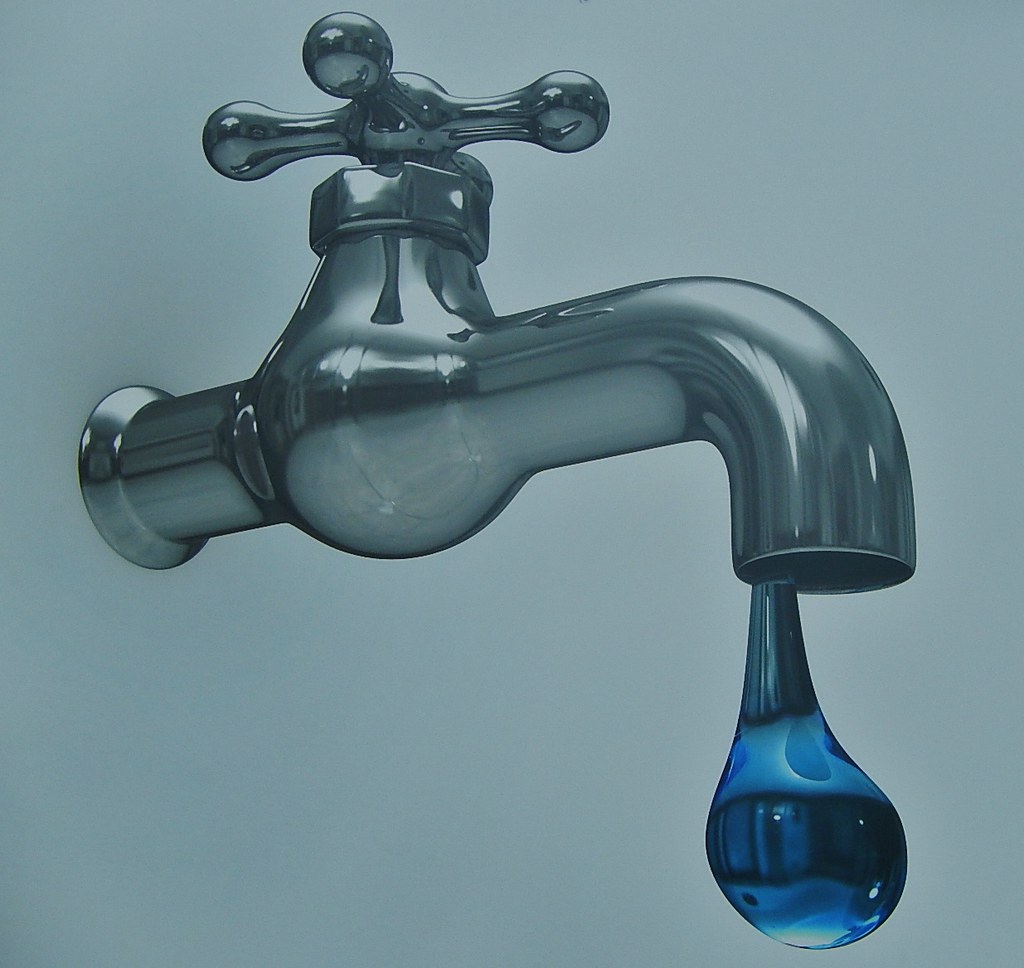
Experience duration – Typical timeframes and milestones
Gaining relevant experience is a crucial step in understanding how to become a qualified plumber. Typically, it takes between two to four years to build the necessary skills, depending on the intensity of your training and the opportunities available. During this period, you’ll reach key milestones such as mastering pipe fitting, leak detection, and installation techniques.
The journey involves a combination of hands-on practice and continuous learning. Many aspiring plumbers find that their skills significantly improve after completing at least 1,500 hours of practical work. This experience sharpens problem-solving skills and deepens familiarity with South Africa’s diverse plumbing standards.
To keep track of your progress, consider maintaining a detailed log of tasks performed and skills acquired. This record not only highlights your growth but also demonstrates your readiness to take the next step toward becoming a fully qualified plumber.
Licensing and Certification
Understanding licensing requirements – State and local regulations
Understanding licensing requirements is a crucial step on the journey of how to become a qualified plumber. In South Africa, plumbing is a regulated trade, and adhering to the legal standards ensures not only compliance but also credibility in the industry. Each province may have specific regulations, making it essential to research local licensing laws thoroughly.
Typically, obtaining a plumbing license involves passing a competency assessment that tests knowledge of building codes, safety standards, and technical skills. This process safeguards the integrity of plumbing work and protects public health. For aspiring plumbers, it’s worth noting that licensing often requires a combination of practical experience and formal training.
To streamline this process, many regions employ a structured approach—often involving
- applying through local trade councils
- completing recognized certification programs
- demonstrating sufficient work experience
—before granting the official license. Understanding these licensing requirements can be the distinguishing factor in establishing a reputable career in plumbing and advancing within the profession. In South Africa, where regulations continue to evolve, staying informed is vital for anyone looking to become a qualified plumber.
How to obtain a license – Application process and exams
Embarking on the journey of how to become a qualified plumber is an exciting adventure filled with opportunity and growth. The pathway to licensure in South Africa is both structured and rewarding, ensuring that only skilled professionals enter the industry. When applying for a plumbing license, candidates typically navigate an application process that includes several crucial steps.
Most regions require aspiring plumbers to pass a comprehensive exam that tests their knowledge of building codes, safety standards, and technical skills. This exam is designed not just as a hurdle, but as a way to uphold the integrity of plumbing work and safeguard public health. To prepare effectively, candidates may need to demonstrate sufficient work experience, often verified through practical assessments or documented apprenticeships.
- Complete recognized certification programs at technical colleges or trade schools.
- Accumulate practical experience through apprenticeships or on-the-job training.
- Apply through local trade councils or licensing boards, submitting proof of training and experience.
- Schedule and pass the competency assessment or licensing exam.
Understanding how to become a qualified plumber involves mastering this application process and preparing thoroughly for each exam. This pathway ensures that only capable and knowledgeable professionals earn their license, setting the stage for a reputable career in the plumbing industry.
Certification options – Specializations and advanced credentials
Licensing and certification elevate a plumber from skilled tradesperson to trusted professional, opening doors to advanced opportunities within the industry. In South Africa, there are various certification options available for those seeking to specialize or attain higher credentials. These credentials not only demonstrate expertise but also serve as a testament to a plumber’s commitment to maintaining industry standards.
For aspiring plumbers eager to deepen their knowledge, specialization in areas such as renewable energy systems, water conservation, or gas fitting can be incredibly rewarding. These advanced certifications often require additional training and assessments, but they significantly enhance a plumber’s marketability and earning potential.
- Gas fitting certification
- Water efficiency specialist
- Renewable energy plumbing
Achieving these credentials often involves completing recognized courses through accredited institutions and passing rigorous examinations. The journey to becoming a qualified plumber doesn’t end with a basic license; it’s a continuous pursuit of excellence, driven by a passion for craftsmanship and an unwavering dedication to public safety. When you understand how to become a qualified plumber, embracing these specialized certifications can set you apart in a competitive landscape, ensuring your career remains dynamic and rewarding.
Continuing Education and Professional Development
Importance of ongoing learning
In the labyrinthine world of plumbing, mastery is an ever-evolving pursuit—an acknowledgment that continuous education is the linchpin to sustained excellence. As technology advances and regulations tighten, staying abreast of industry innovations isn’t just advisable; it’s imperative for those who aspire to be recognized as truly qualified plumbers. Ongoing professional development ensures that skills remain sharp and compliant with South African standards, transforming good practitioners into industry leaders.
Engaging in continuing education offers a dual benefit: it sharpens technical expertise and nurtures adaptability in a rapidly changing sector. Whether through specialized certifications or workshops on eco-friendly plumbing solutions, each learning opportunity deepens understanding and broadens scope. For anyone pondering how to become a qualified plumber, embracing lifelong learning is the secret ingredient that propels a career from competent to exceptional! And with every new skill acquired, the pathway becomes clearer, efficient, and more rewarding.
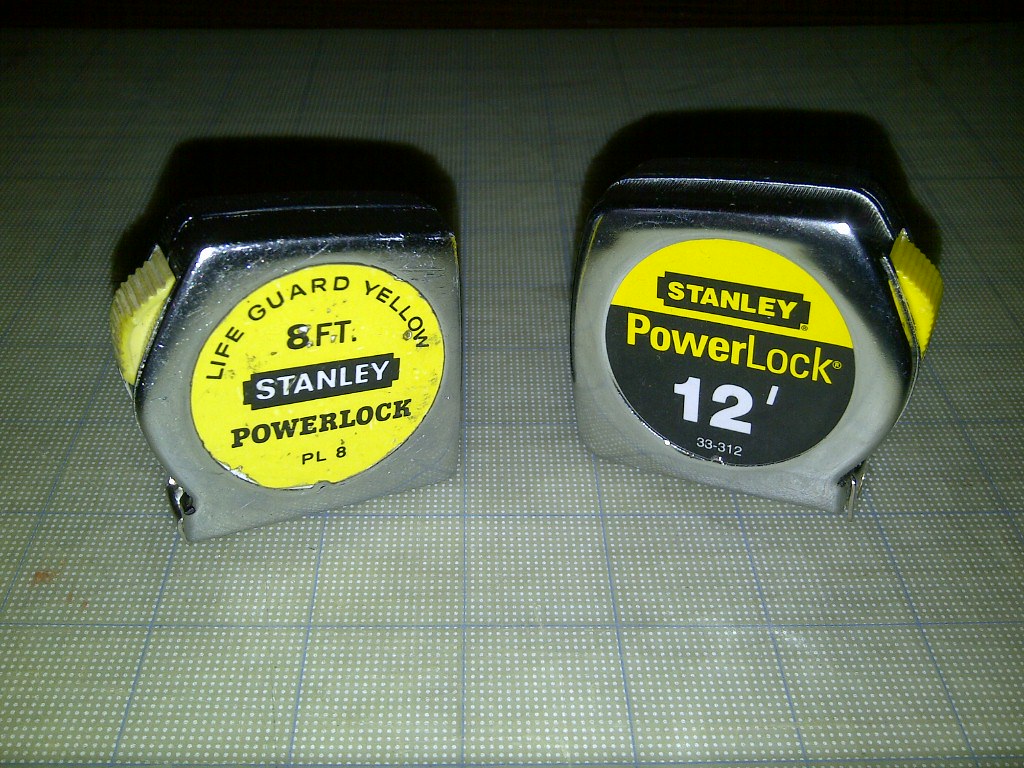
Courses and seminars – Keeping skills current
Staying ahead in the dynamic world of plumbing demands more than just foundational skills; it requires a commitment to ongoing education and professional development. Participating in targeted courses and seminars allows plumbers to keep their skills sharp, adapt to new technologies, and stay compliant with evolving South African standards. These learning opportunities provide a platform to explore innovations such as eco-friendly plumbing solutions, smart water management, and advanced pipe installation techniques.
Engaging in continuing education is not merely about ticking boxes—it’s about fostering a mindset of growth and excellence. Many technical colleges and trade schools offer specialized workshops tailored to current industry needs, making it easier for plumbers to expand their expertise. For those wondering how to become a qualified plumber, these courses are invaluable for transforming competence into mastery. As the sector evolves, so too must the skills of those dedicated to the craft.
To facilitate structured growth, some professionals prefer to follow an ordered pathway, such as:
- Attending industry seminars on emerging plumbing technologies.
- Obtaining certifications in niche fields like eco-friendly plumbing or leak detection.
- Participating in refresher courses aligned with South African licensing standards.
Ultimately, continuous professional development offers a dual advantage: it enhances technical capabilities while fostering adaptability. For aspiring plumbers in South Africa, embracing lifelong learning is the key to staying relevant and excelling in a competitive landscape. Every new skill acquired not only boosts confidence but also clarifies the pathway to becoming a truly qualified plumber—an essential step in building a reputable and sustainable career in plumbing.
Joining professional organizations – Networking and resources
Joining professional organizations is a vital step on the journey of how to become a qualified plumber in South Africa. These bodies offer more than just credentials; they serve as gateways to a wealth of networking opportunities and resources that can elevate your career. As you navigate the complex landscape of plumbing, being part of a reputable organization connects you with industry leaders, latest standards, and cutting-edge innovations.
Membership often grants access to exclusive workshops, seminars, and certification programs that keep your skills sharp and your knowledge current. For example, many associations provide tailored resources on eco-friendly plumbing solutions and smart water management—crucial areas for modern plumbing professionals. These connections and continuous learning opportunities foster a growth mindset essential for aspiring plumbers eager to excel and differentiate themselves in a competitive market.
- Attend industry seminars on emerging plumbing technologies
- Participate in regular networking events hosted by professional bodies
- Access exclusive resources and technical updates to stay compliant with South African standards
Engaging with these organizations not only enhances technical capabilities but also builds a reputation grounded in professionalism and expertise. Ultimately, understanding how to become a qualified plumber involves more than formal education; it’s about committing to a lifelong pursuit of excellence through active participation in the broader plumbing community.
Starting Your Plumbing Career
Job hunting tips – Building your portfolio and resume
Embarking on a journey to become a qualified plumber is more than just acquiring technical skills; it’s about forging a profession rooted in trust and integrity. When job hunting, your portfolio and resume serve as your first impression—your personal blueprint of competence and dedication. A well-crafted portfolio not only showcases your practical experience but also reflects your commitment to continuous learning. Include details about your apprenticeship milestones, certifications, and any specialized training that sets you apart in the plumbing industry.
Building a compelling resume involves emphasizing your hands-on skills, problem-solving abilities, and understanding of local plumbing regulations. Highlighting your familiarity with licensing requirements in South Africa demonstrates your readiness to tackle projects legally and ethically. To enhance your prospects, consider creating an unordered list of key elements to feature:
- Practical experience from apprenticeships or on-the-job training
- Certifications and specialized qualifications
- Knowledge of local plumbing codes and standards
- Strong references from previous employers or mentors
In the competitive landscape of plumbing careers, your portfolio and resume are your most powerful tools—anchors that communicate your readiness to excel as a qualified plumber. The right presentation can open doors to opportunities that propel you into a lifelong pursuit of mastery and service.
Establishing your own business – Requirements and advice
Starting your plumbing career with the ambition to establish your own business can be both exhilarating and daunting. In South Africa, aspiring plumbers must navigate a series of requirements to ensure their ventures are both legal and successful.
One crucial step is understanding the licensing process, which involves meeting specific local plumbing regulations and passing relevant exams. To streamline this journey, consider creating a comprehensive portfolio that highlights your practical experience, certifications, and specialized training. This portfolio not only demonstrates your competence but also builds trust with potential clients and regulatory bodies.
When you’re ready to establish your own plumbing business, focus on fulfilling all legal requirements—registering your company, obtaining necessary licenses, and insuring your operations. Additionally, developing a clear business plan and marketing strategy will set you on the path to success. Remember, becoming a qualified plumber isn’t solely about technical mastery; it’s about cultivating credibility and integrity in every pipe you lay and every client you serve.
Building a reputation – Customer service and quality work
Building a reputation as a skilled plumber goes far beyond technical mastery; it’s about cultivating trust through exceptional customer service and unwavering commitment to quality work. In South Africa, where the plumbing industry is fiercely competitive, your ability to deliver reliable solutions and communicate transparently with clients can set you apart. When clients see your dedication to excellence, they’re more likely to recommend your services and become repeat customers, creating a solid foundation for your career.
To truly excel in this field, focus on developing a reputation for integrity and professionalism. This means arriving on time, respecting clients’ properties, and providing honest assessments of the work needed. Remember, every pipe you install or repair is an opportunity to showcase your expertise and reinforce your credibility. By consistently prioritizing customer satisfaction, you’ll not only grow your business but also build a dependable presence in your community.
For aspiring plumbers wondering how to become a qualified plumber, understanding that reputation is key is essential. It’s the intangible asset that transforms your skills into a thriving career, paving the way for future opportunities and success in the competitive South African plumbing landscape. Your commitment to customer service and quality workmanship will be your most valuable tools on this journey.
Additional Tips for Success
Stay updated with industry trends
Staying ahead in the plumbing industry requires more than just technical know-how; it demands an ongoing commitment to industry trends that shape the future of water management and infrastructure. As technology advances, so do the tools and methods used by skilled plumbers, making continuous learning an essential component of professional growth. Embracing new innovations, such as eco-friendly plumbing solutions or smart home integration, can set you apart and elevate your expertise in a competitive market.
To deepen your understanding of emerging trends, consider engaging with specialized courses, attending industry seminars, or subscribing to leading trade publications. Networking through professional organizations not only broadens your perspective but also exposes you to cutting-edge practices and regulatory updates. For example, keeping abreast of developments in sustainable plumbing systems can influence your approach, ensuring you remain relevant and highly sought-after.
- Regularly review industry publications and online forums for the latest innovations.
- Participate in workshops and seminars to gain hands-on experience with new technologies.
- Build relationships with suppliers and industry peers to stay informed about market shifts and regulatory changes.
Remaining adaptable and informed is pivotal in mastering how to become a qualified plumber—an endeavor that demands both dedication and curiosity. Such proactive engagement not only enhances your skill set but also cultivates confidence, positioning you as a forward-thinking professional in the dynamic landscape of South African plumbing.
Invest in quality tools – Essential equipment for plumbers
Investing in quality tools isn’t just savvy—it’s essential for anyone on the path of how to become a qualified plumber. Picture this: a skilled surgeon with rusty scissors—counterproductive, right? The same applies to plumbing. Using subpar equipment can lead to delays, costly repairs, and a dented reputation. Instead, focus on acquiring high-grade tools that stand the test of time and tough jobs.
Reliable wrenches, durable pipe cutters, and precision multimeters are the backbone of a professional plumber’s arsenal. Think of these as your trusty sidekicks—each with a specific role in ensuring your work is efficient and up to standard. Remember, investing in top-tier tools might cost more upfront, but it pays dividends in quality work and customer satisfaction.
To make your toolkit complete, consider the following essential equipment for plumbers:

- Adjustable spanners
- Pipe benders
- Plumber’s tape and sealants
- Drain snakes and augers
Ultimately, the right tools can transform a mediocre job into a showcase of craftsmanship. When you’re well-equipped, you’ll find yourself more confident tackling complex projects, which is a crucial step in mastering how to become a qualified plumber in South Africa’s competitive market.
Developing a strong work ethic – Reliability and professionalism
Developing a strong work ethic is fundamental to mastering how to become a qualified plumber. Reliability and professionalism are the cornerstones of a successful career in plumbing, especially within South Africa’s competitive market. Clients value consistency, punctuality, and a respectful attitude—traits that build trust and foster long-term relationships.
A dedicated plumber understands that every job, no matter how small, reflects their integrity. To reinforce this, focus on punctuality, clean work habits, and clear communication. These qualities not only enhance your reputation but also set you apart from less committed competitors.
Remember, a professional attitude combined with a passion for precision transforms ordinary work into artistry. When you consistently demonstrate reliability, you’re more likely to receive referrals and grow your business organically. This unwavering commitment ultimately paves the way for a thriving career and solidifies your standing as a skilled, respected plumber in South Africa’s bustling industry.
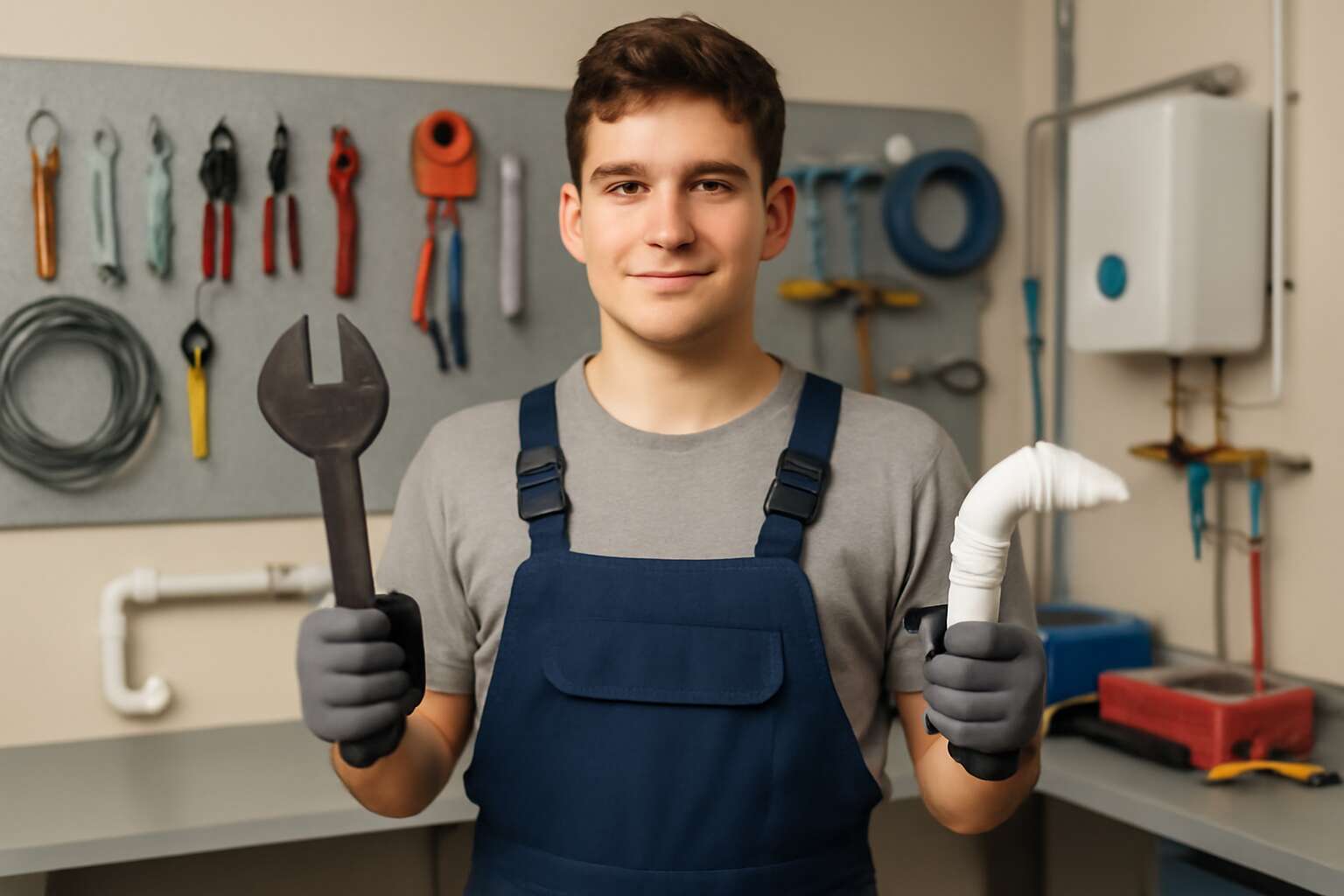
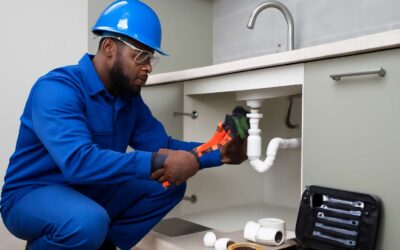
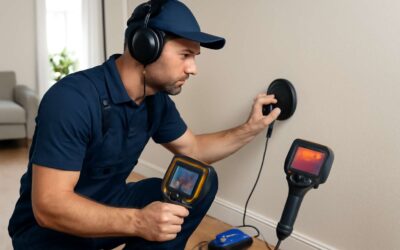
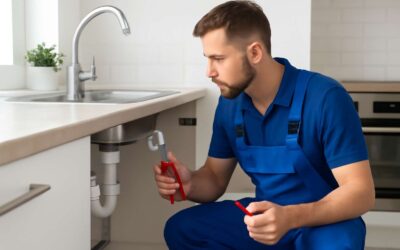
0 Comments